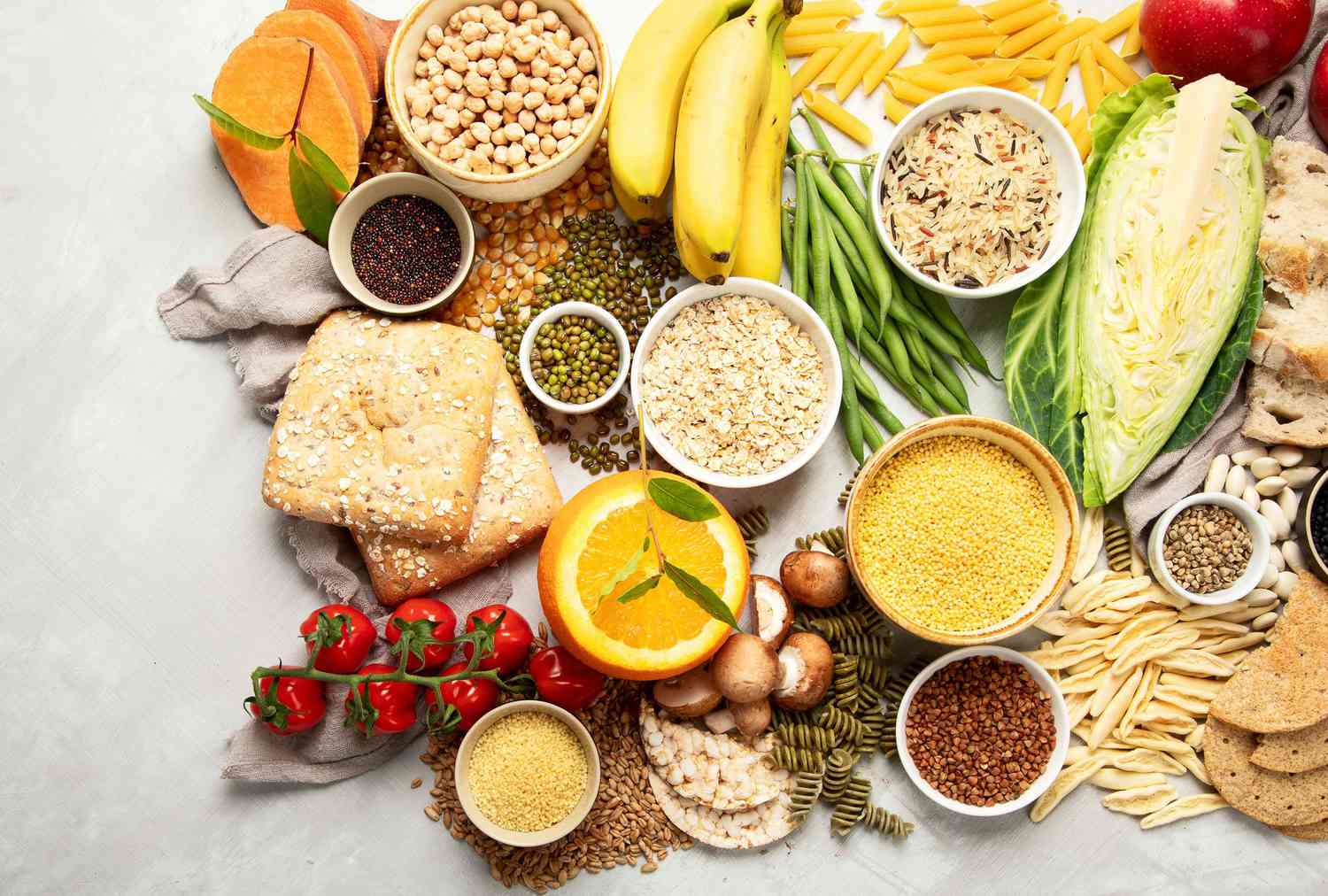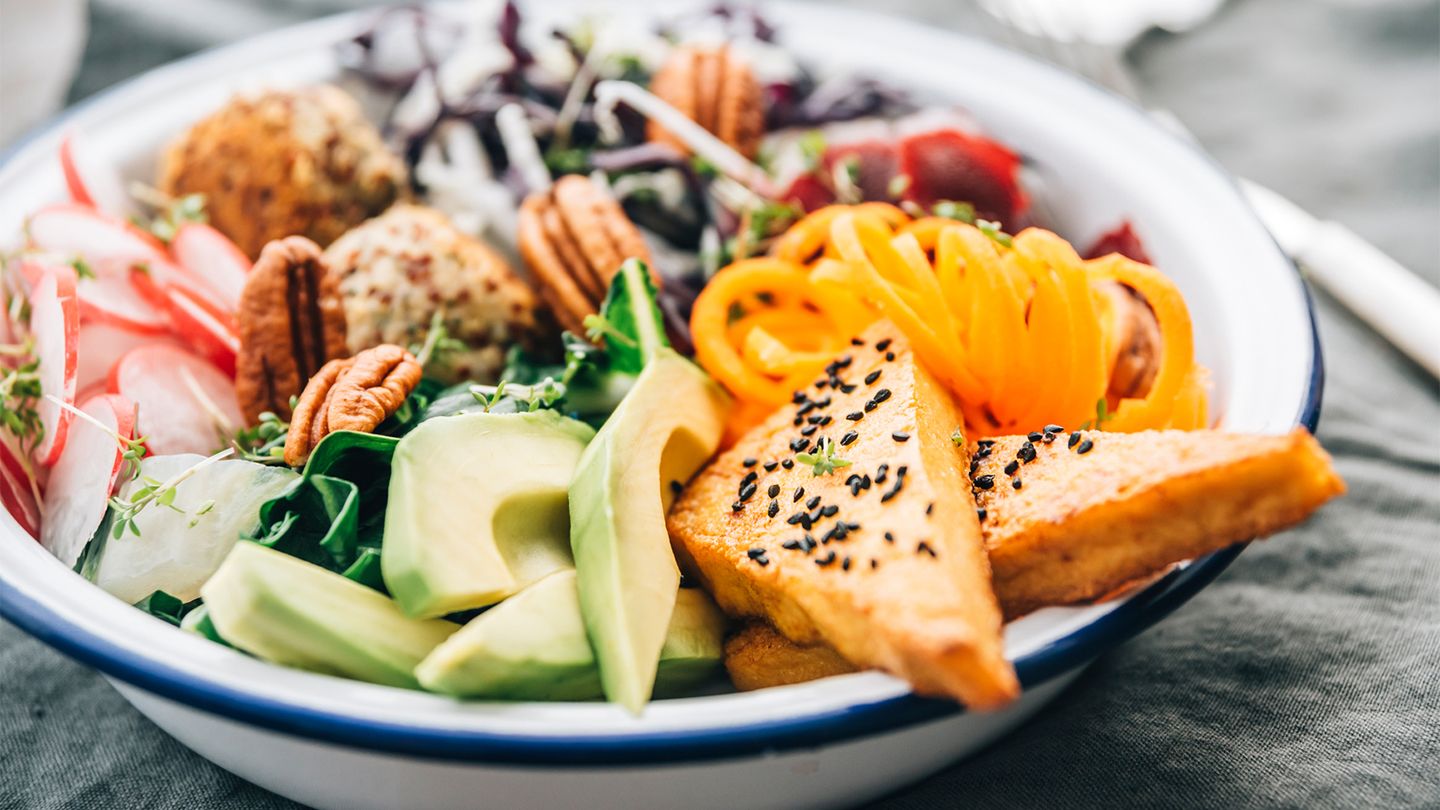Eating carbohydrates can be a healthy choice when you focus on the right kinds. Incorporating nutrient-dense high-carb foods into your diet can provide you with sustained energy and essential nutrients. Many people have misconceptions about carbs, often linking them to weight gain. However, when chosen wisely, they can play an important role in a balanced diet.
In this post, you’ll discover eight healthy high-carb foods that support your nutrition goals. These options offer not only energy but also various health benefits that can enhance your overall well-being. From whole grains to nutritious vegetables, it’s time to rethink how you view carbohydrates in your meals.
Understanding how to include these foods in your diet can help you maintain energy levels and improve your health. Let’s dive into the eight healthy high-carb foods that can make a positive impact on your diet.
Key Takeaways
- High-carb foods can provide essential energy and nutrients.
- Not all carbohydrates lead to weight gain; the type matters.
- Incorporating healthy carbs into meals can enhance your diet and health.
Understanding Carbohydrates
Carbohydrates are crucial for your daily energy needs. They come in various forms, each affecting your body differently. Knowing the types of carbohydrates and their role in energy production helps you make better food choices.
Types of Carbohydrates
Carbohydrates can be divided into three main types: sugars, starches, and fiber.
- Sugars are simple carbohydrates found in fruits, vegetables, and dairy. They provide quick energy but can spike blood sugar levels.
- Starches are complex carbohydrates, made of longer chains of sugar molecules. They are found in foods like whole grains, legumes, and potatoes. These are digested more slowly and provide a steadier energy release.
- Fiber is also a complex carbohydrate, but it isn’t digested by your body. It aids digestion and helps manage blood sugar levels. Foods rich in fiber include whole grains, fruits, and vegetables.
Understanding these types can help you choose the right carbs for energy and health.
Carbs and Energy
Carbohydrates are the body’s main energy source. When you eat carbs, your body breaks them down into glucose. This glucose is then used for immediate energy or stored for later use.
Not all carbohydrates are equal.
- Complex carbohydrates release energy slowly, making them better for sustained energy. Foods high in fiber, like oats and brown rice, are good examples.
- Refined carbs, such as white bread and sugary snacks, can cause rapid spikes in blood sugar. These spikes can leave you tired and craving more sugar.
Choosing the right types of carbohydrates will give you lasting energy and help maintain stable blood sugar levels.
Health Benefits of High-Carb Foods
High-carb foods can play a vital role in your nutrition. They often provide fiber, support blood sugar management, and promote heart health. Understanding these benefits can help you make informed choices for your diet.
Fiber and Digestive Health
Eating high-carb foods rich in fiber is important for maintaining good digestive health. Foods like oats, quinoa, and starchy vegetables contain both soluble and insoluble fiber.
- Soluble Fiber: Helps regulate blood sugar and lowers cholesterol levels.
- Insoluble Fiber: Aids in digestion and keeps you regular.
Fiber can also promote a healthy gut. It feeds beneficial gut bacteria, which can improve your immune system and may even aid in weight loss. A diet high in fiber can help prevent constipation and reduce the risk of digestive disorders. Aim for foods with at least 3 grams of fiber per serving for better gut health.
Blood Sugar Management
High-carb foods can stabilize your blood sugar levels when paired with fiber and protein. Foods like sweet potatoes and whole grains digest slowly.
This slow digestion helps prevent spikes in blood sugar. Such fluctuations can increase the risk of type 2 diabetes over time. By focusing on complex carbohydrates, you can maintain steady energy levels.
For people with diabetes, choosing the right carbs is crucial. Foods with a low glycemic index (GI) like legumes and whole grains are ideal. These foods can help you manage blood sugar effectively.
Heart Health and Cholesterol
Including healthy high-carb foods in your diet can support heart health. Whole grains, fruits, and vegetables are linked to lower cholesterol levels.
The fiber in these foods can reduce LDL (“bad”) cholesterol, which decreases the risk of heart disease. Additionally, potassium-rich foods like bananas and sweet potatoes help regulate blood pressure.
Regularly eating high-carb foods can also improve overall cardiovascular health. A balanced diet filled with nutritious carbs, along with a healthy lifestyle, offers long-term benefits for your heart.

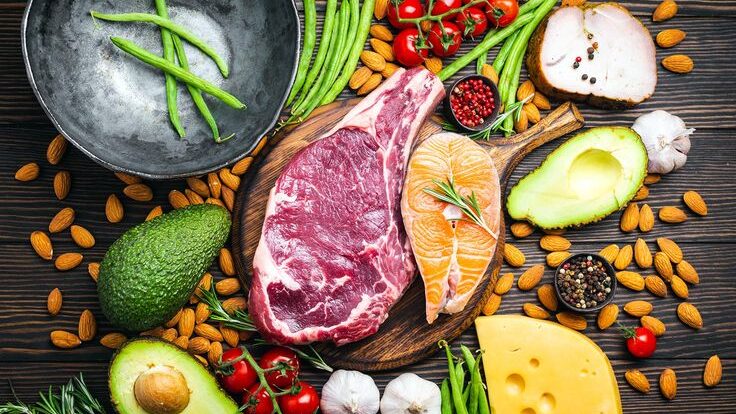
The Best High-Carb Foods to Include in Your Diet
Incorporating healthy high-carb foods into your diet can provide essential nutrients and energy. Focus on whole grains, fruits, legumes, and root vegetables to ensure a balanced intake of carbohydrates that support your overall health.
Whole Grains and Cereals
Whole grains are packed with nutrients and offer complex carbs that digest slowly. This helps maintain steady energy levels.
- Oats: A popular choice, oats are high in fiber and can lower cholesterol levels. One cup of cooked oats provides about 27 grams of carbs and various vitamins and minerals.
- Quinoa: Known for being a complete protein, quinoa offers about 39 grams of carbs per cooked cup. It’s also gluten-free and rich in fiber, which aids digestion.
- Brown Rice: This whole grain contains about 45 grams of carbs per cooked cup. It’s a great source of B vitamins and minerals, supporting overall health.
Including these grains in your meals helps you stay full and energized throughout the day.
Fruits and Berries
Fruits and berries are not only delicious but also packed with vitamins, minerals, and antioxidants. They are a crucial part of a healthy diet.
- Bananas: A medium banana has 30 grams of carbs and provides potassium and vitamin C. They are great for a quick energy boost.
- Apples: A large apple contains about 34 grams of carbs, including 5 grams of fiber. Eating apples with the skin adds even more fiber and nutrients.
- Berries: Strawberries and blueberries are high in antioxidants. For example, a cup of strawberries has about 11 grams of carbs and is rich in vitamin C.
Adding a variety of fruits and berries can satisfy your sweet cravings while providing health benefits.
Legumes and Beans
Legumes and beans are excellent sources of protein and complex carbs. They also contain high fiber, which supports gut health.
- Lentils: One cup of cooked lentils has about 40 grams of carbs and is rich in iron and folate. They are great for soups and salads.
- Chickpeas: With around 45 grams of carbs per cooked cup, chickpeas are versatile. You can add them to salads or make hummus.
- Black Beans: These beans provide about 41 grams of carbs per cooked cup. They are high in antioxidants and great for heart health.
Including a variety of legumes in your meals boosts both fiber and nutrient intake.
Tubers and Root Vegetables
Tubers and root vegetables are nutritious, starchy foods that can energize your meals.
- Potatoes: A medium potato has about 37 grams of carbs. They’re filling and a good source of potassium and vitamin C.
- Sweet Potatoes: Packed with about 27 grams of carbs, sweet potatoes are high in fiber and beta carotene. They make a delicious side dish when roasted.
- Carrots: A cup of chopped carrots contains about 12 grams of carbs and provides beta carotene and fiber.
These vegetables can be used in various dishes, adding flavor and nutrition to your diet.
Misconceptions About Carbs and Weight Gain
Many people believe that carbohydrates automatically cause weight gain. This idea can lead to confusion about which types of carbs are healthy and what your body really needs to function well. Understanding the difference between refined and whole carbs is important. It helps you make better food choices without unnecessary fear.
Refined vs. Whole Carbs
Refined carbohydrates, like those found in white bread, white flour, and many processed foods, often have added sugars and fewer nutrients. These are quickly digested, which can cause spikes in your blood sugar. Over time, this can lead to cravings and overeating, potentially contributing to weight gain and obesity.
On the other hand, whole carbohydrates, such as brown rice, whole grains, and legumes, contain more fiber. Fiber slows digestion and helps keep you feeling full. These foods also provide essential vitamins and minerals that support overall health. Choosing whole carbs instead of refined ones can help you manage your weight effectively.
Carbohydrate Needs and Dietary Balance
Carbohydrates are your body’s main source of energy. Therefore, you need a balanced diet that includes the right kind of carbs. The number of carbs you should eat depends on factors like your age, activity level, and overall health.
Most guidelines suggest that carbohydrates should make up 45% to 65% of your total daily calories. This means you can include healthy carbs without fearing weight gain. Focusing on whole grains, fruits, and vegetables can help you meet your dietary needs while promoting a healthy weight. Remember, it’s not carbs that cause weight gain, but rather the types and quantities you eat.
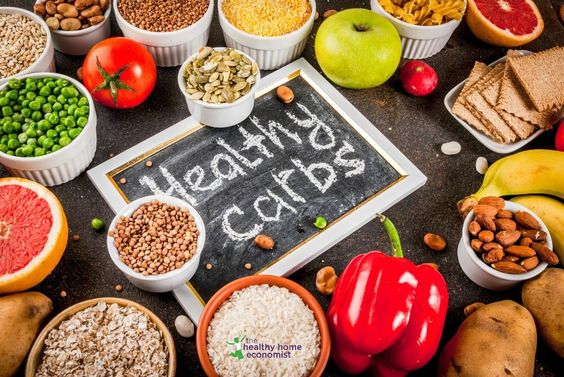
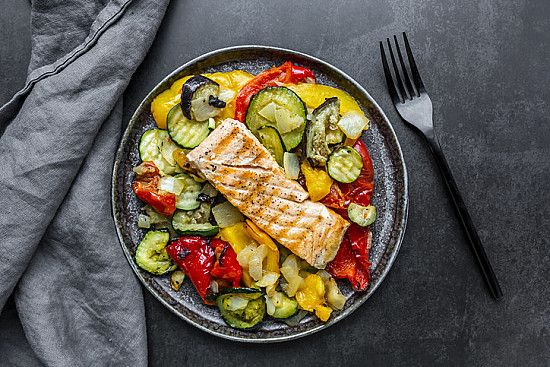
Incorporating High-Carb Foods into a Healthy Diet
Including high-carb foods in your diet can support energy levels and provide essential nutrients. It’s important to know how to incorporate these foods wisely to maintain a balanced diet.
Meal Planning Tips
Start by identifying your favorite high-carb foods. Options like oats, quinoa, and sweet potatoes are nutritious choices. Plan your meals around these foods to ensure you include them regularly.
Consider making a weekly menu. This can help you organize your meals and grocery shopping. Incorporate a variety of colors and textures, which ensures a rich intake of nutrients.
Sample Meal Ideas:
- Breakfast: Oatmeal topped with fruit
- Lunch: Quinoa salad with veggies
- Dinner: Baked sweet potato with a side of greens
Balancing Macronutrients
When planning meals, aim for a balance of macronutrients: carbohydrates, proteins, and fats. High-carb foods can be paired with plant-based proteins like beans, lentils, or tofu.
For example, pair whole grains with leafy greens and healthy fats like avocado. This balance supports your energy and keeps you full longer.
To ensure you meet your daily values, check food labels. Look for foods that offer fiber and other vitamins as they contribute to overall health and digestive comfort.
Portion Sizes and Frequency
Portion control is key to enjoying high-carb foods without overdoing it. A good starting point is to fill half your plate with vegetables, a quarter with high-carb foods, and a quarter with protein.
Aim to include high-carb foods in your meals 3-4 times a day. This helps maintain steady energy levels.
Portion Guide:
- Oats: 1 cup cooked
- Quinoa: ½ cup cooked
- Sweet Potato: 1 medium
Listening to your body’s hunger cues can help you adjust portion sizes as needed. With mindful eating, you can enjoy the benefits of high-carb foods while maintaining a healthy balance.
Frequently Asked Questions
Eating healthy carbohydrates can be beneficial for your diet. Here are some common questions about high-carb foods.
What foods are considered healthy sources of carbohydrates?
Healthy sources of carbohydrates include fruits, vegetables, whole grains, and legumes. These foods provide essential nutrients and fibers that support your overall health.
Which high-carb foods should I include in my diet for balanced nutrition?
For balanced nutrition, consider foods like quinoa, brown rice, oats, and sweet potatoes. These options provide energy and essential vitamins and minerals.
What are the benefits of incorporating high-carb foods in a healthy diet?
High-carb foods can offer quick energy and help maintain blood sugar levels. They can also improve digestion due to their fiber content.
Can you list some whole food sources of healthy carbohydrates?
Whole food sources of healthy carbohydrates include whole grain bread, brown rice, beans, and a variety of fruits and vegetables. These foods are minimally processed and rich in nutrients.
How can high-carb foods be effectively integrated into a weight loss plan?
To integrate high-carb foods into a weight loss plan, focus on portion control and balance. Combine carbs with proteins and healthy fats to keep you satisfied.
What are some carbohydrate-rich foods that also contain other essential nutrients?
Foods like sweet potatoes, legumes, and fruits are rich in carbohydrates and also provide vitamins, minerals, and fiber. These foods contribute to your daily nutritional needs while offering energy.
